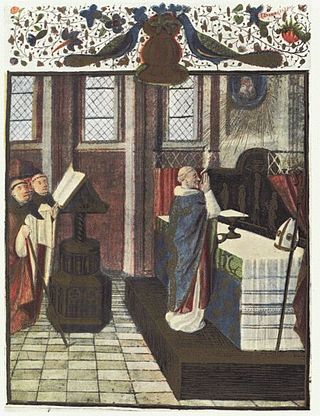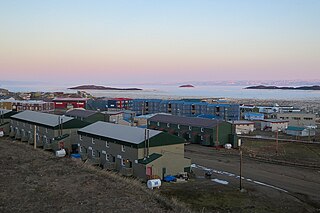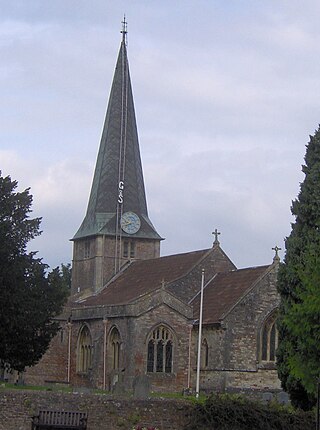Related Research Articles
Anglicanism is a Western Christian tradition that has developed from the practices, liturgy, and identity of the Church of England following the English Reformation, in the context of the Protestant Reformation in Europe. It is one of the largest branches of Christianity, with around 110 million adherents worldwide as of 2001.

The Eucharist, also known as Holy Communion, Blessed Sacrament and the Lord's Supper, is a Christian rite that is considered a sacrament in most churches, and as an ordinance in others. Christians believe that the rite was instituted by Jesus at the Last Supper, the night before his crucifixion, giving his disciples bread and wine. Passages in the New Testament state that he commanded them to "do this in memory of me" while referring to the bread as "my body" and the cup of wine as "the blood of my covenant, which is poured out for many". According to the Synoptic Gospels this was at a Passover meal.

Year 1578 (MDLXXVIII) was a common year starting on Wednesday of the Julian calendar.

Mass is the main Eucharistic liturgical service in many forms of Western Christianity. The term Mass is commonly used in the Catholic Church, Western Rite Orthodoxy, Old Catholicism, and Independent Catholicism. The term is also used in some Lutheran churches, as well as in some Anglican churches, and on rare occasion by other Protestant churches.

Sir Martin Frobisher was an English sailor and privateer who made three voyages to the New World looking for the North-west Passage. He probably sighted Resolution Island near Labrador in north-eastern Canada, before entering Frobisher Bay and landing on present-day Baffin Island. On his second voyage, Frobisher found what he thought was gold ore and carried 200 tons of it home on three ships, where initial assaying determined it to be worth a profit of £5.20 per ton. Encouraged, Frobisher returned to Canada with an even larger fleet and dug several mines around Frobisher Bay. He carried 1,350 tons of the ore back to England, where, after years of smelting, it was realized that the ore was a worthless rock containing the mineral hornblende. As an English privateer, he plundered riches from French ships. He was later knighted for his service in repelling the Spanish Armada in 1588.
Full communion is a communion or relationship of full agreement among different Christian denominations or Christian individuals that share certain essential principles of Christian theology. Views vary among denominations on exactly what constitutes full communion, but typically when two or more denominations are in full communion it enables services and celebrations, such as the Eucharist, to be shared among congregants or clergy of any of them with the full approval of each.

Frobisher Bay is an inlet of the Davis Strait in the Qikiqtaaluk Region of Nunavut, Canada. It is located in the southeastern corner of Baffin Island. Its length is about 230 km (140 mi) and its width varies from about 40 km (25 mi) at its outlet into the Labrador Sea to roughly 20 km (12 mi) towards its inner end.

Bus, Buss, or Busse Island was a phantom island in the North Atlantic Ocean. It was recorded as discovered during the third expedition of Martin Frobisher in September 1578 by sailors aboard the ship Emanuel of Bridgwater and was indicated on maps as existing between Ireland and mythical Frisland at about 57° N. The island was then named for the type of vessel that its discoverers used. It is believed that Frobisher took Greenland for Frisland and Baffin Island for Greenland and Emanuel, returning home, made a mistake in dead reckoning and mistook optical effects near Greenland at around 62° N for new land.

Christ Church Cathedral in Vancouver, British Columbia, Canada, is the cathedral church of the Anglican Diocese of New Westminster of the Anglican Church of Canada, and the second church to have been the diocese's cathedral. A place of worship in Greater Vancouver, the cathedral is located at 690 Burrard Street on the northeast corner of West Georgia Street, directly across from the Fairmont Hotel Vancouver in Downtown Vancouver.

The Anglican Church of Canada is the province of the Anglican Communion in Canada. The official French-language name is l'Église anglicane du Canada. In 2017, the Anglican Church counted 359,030 members on parish rolls in 2,206 congregations, organized into 1,571 parishes. The 2021 Canadian census counted 1,134,315 self-identified Anglicans, making the Anglican Church the third-largest Canadian church after the Catholic Church and the United Church of Canada. The 2021 Canadian census counted more than 1 million self-identified Anglicans, remaining the third-largest Canadian church.

Samuel Seabury was the first American Episcopal bishop, the second Presiding Bishop of the Episcopal Church in the United States of America, and the first Bishop of Connecticut. He was a leading Loyalist in New York City during the American Revolution and a known rival of Alexander Hamilton.
Edward Fenton was an English navigator, son of Henry Fenton and Cicely Beaumont and brother of Sir Geoffrey Fenton. He was also a publisher of diaries and journals.

Anglican eucharistic theology is diverse in practice, reflecting the comprehensiveness of Anglicanism. Its sources include prayer book rubrics, writings on sacramental theology by Anglican divines, and the regulations and orientations of ecclesiastical provinces. The principal source material is the Book of Common Prayer, specifically its eucharistic prayers and Article XXVIII of the Thirty-Nine Articles. Article XXVIII comprises the foundational Anglican doctrinal statement about the Eucharist, although its interpretation varies among churches of the Anglican Communion and in different traditions of churchmanship such as Anglo-Catholicism and Evangelical Anglicanism.

Thanksgiving or Thanksgiving Day, is an annual Canadian holiday held on the second Monday in October. Outside of the country, it may be referred to as Canadian Thanksgiving to distinguish it from the American holiday of the same name and related celebrations in other regions.
James Alday (1516–1576?) was a 16th-century English navigator, explorer and privateer. He participated in raids against the Spanish with fellow privateers James Logan and William Cooke during the 1540s and is credited, along with Sebastian Cabot and Henry Ostrich, of the start of regular trading between England and the Barbary coast.
George Best (1555–1584) was a member of the second and third Martin Frobisher voyages in positions of importance; as Frobisher's lieutenant on the second and as captain of the Anne Francis on the third. In 1578 he published A True Discourse of the Late Voyages of Discoverie.
Admiral Luke Warde, was an English naval officer who served during the Tudor period.

The Church of St Mary in West Harptree within the English county of Somerset was built in the 12th century, with the spire being added in the 13th century. It is a Grade II* listed building.

Kodlunarn Island, known as Qallunaaq in Inuktitut and originally named Countess of Warwick Island, is a small island located in Frobisher Bay in the Canadian territory of Nunavut. During the 1570s, explorer Martin Frobisher led expeditions to the island to mine what he believed was gold ore. The ore turned out to be worthless, and the island was ignored by explorers until Charles Francis Hall, inspired by oral history accounts from the Inuit of Frobisher Bay, visited the site in 1861 to investigate the remains of Frobisher's expeditions. Notable features of the island include two large mining trenches and the remains of a stone house built by Frobisher in 1578. Kodlunarn Island was designated a National Historic Site of Canada in 1964.

The 1962 Book of Common Prayer is an authorized liturgical book of the Canada-based Anglican Church of Canada. The 1962 prayer book is often also considered the 1959 prayer book, in reference to the year the revision was first approved for an "indefinite period" of use beginning in 1960. The 1962 edition follows from the same tradition of other versions of the Book of Common Prayer used by the churches within the Anglican Communion and Anglicanism generally. It contains both the Eucharistic liturgy and Daily Office, as well as additional public liturgies and personal devotions. The second major revision of the Book of Common Prayer of the Anglican Church of Canada, the 1962 Book of Common Prayer succeeded the 1918 edition, which itself had replaced the Church of England's 1662 prayer book. While supplanted by the 1985 Book of Alternative Services as the Anglican Church of Canada's primary Sunday service book, the 1962 prayer book continues to see usage.
References
- 1 2 3 "Robert Wolfall, Presbyter". Christ Church (Anglican) Windsor, Nova Scotia. Retrieved 31 January 2014.
- 1 2 3 "First Anglican Eucharist(s) in Canada". Anglican Church of Canada. Retrieved 31 January 2014.
- ↑ "West Harptree". Bath and Avon Family History Society. Retrieved 31 January 2014.
- 1 2 3 William Stevens Perry, The History of the American Episcopal Church 1587-1883 (Boston, 1885) vol.1, p. 7